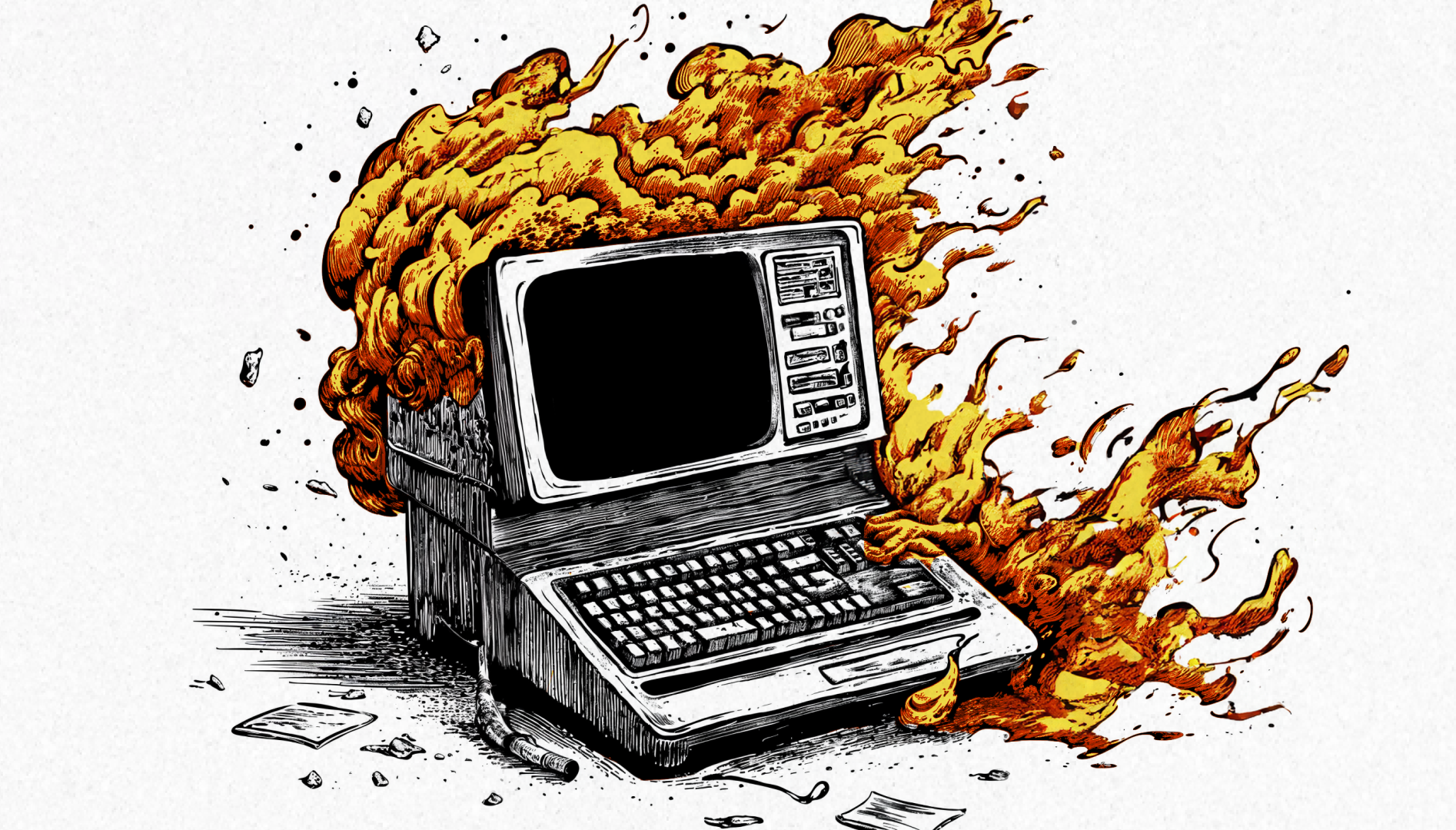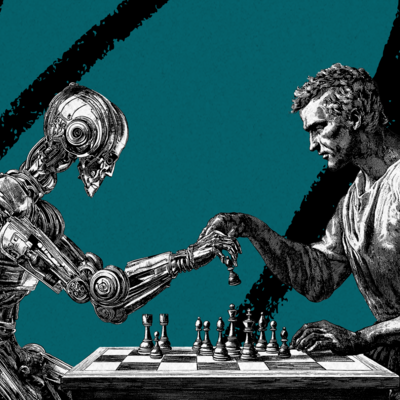
Sponsor Every
Do you run a software company looking to reach an audience of early-adopters? Consider sponsoring our smart long-form essays on tech, AI, and productivity:
I hate to be the bearer of bad news, but all of the time we’ve spent organizing our notes was probably wasted.
Instead, in the immediate future, our notes will be organized for us by large language models (LLMs) like GPT-3. Let’s explore.
. . .
Note taking is building a relationship with a future version of yourself.
Notes record facts, quotes, ideas, events, and more so they can eventually be used to make better decisions, create more interesting writing, and find solutions to problems.
For a long time, the way we’ve tried to make this relationship work is by creating organizational systems. The best way to make sure future versions of ourselves had the right notes at the right time was by constructing Rube Goldberg machines of tags, notebook hierarchies, and bi-directional links so that we could pull up our notes when we needed them. Or at the very least, we could easily find them through search if we knew what we were looking for.
But ultimately, the organizing solutions we’ve built are brittle. We build and abandon new systems all the time, and rarely, if ever, go back to look at old notes. Tags get created and then abandoned. Links rarely get followed. And we feel guilty: there’s a lot of value locked up in what we’ve collected over the years, if we could just figure out how to use it. Paying for a new notes tool is like signing up for a gym membership on January 1. You know you’ll abandon it, but the money you spend soothes your anxiety about not making the most of what you have.
AI changes this equation. A better way to unlock the value in your old notes is to use intelligence to surface the right note, at the right time, and in the right format for you to use it most effectively. When you have intelligence at your disposal, you don’t need to organize.
If we want to understand how AI fixes organizing, first we need to understand why organizing notes is so hard. Then we can talk about what might be different about it in the future.
Why organizing notes is so hard
The more precisely we know what to use a piece of information for, the more easily we can organize it.
The problem is, we put things into notes because we don't know what we'll use them for. You write down a quote from a book because you could eventually use it in 1,000 different ways. You could use it to help you make a decision, or write an essay, or lift a friend’s spirit when they’re going through a tough time (and you might use it for all three). Same thing for writing down notes from a meeting, or thoughts about a new person you met.
As I argued in “The Notetaking Cold War,” this makes finding a single organizing system for your notes quite challenging. You’ll continually reorganize your system, or feel a pull to put a note in many different places, or tag it to make sure it pops up again in different contexts.
This usually doesn’t work so well, and even when you do bump into an old note at the right time, you’re faced with another problem:
Looking at old notes is a bit like looking at stale garbage.
A note that’s been dashed off in a meeting or hurriedly taken down in the middle of the night when you get an idea is usually hard to understand, and takes a while to parse. As I wrote in “The Fall of Roam,” when you read an old note you have to load its context back into your head about when you took it and why before you understand what it’s saying, and whether or not it’s relevant to the task at hand.
So you rarely go back to use your old notes. It’s too cognitively expensive and not rewarding enough. For an old note to be helpful it needs to be presented to Future You in a way that clicks into what you’re working on instantly—with as little processing as possible.
This is where large language models come in.
How AI models solve the note organizing problem
AI models like GPT-3 can solve organizing in a few key ways.
First, they can automatically tag and link notes together with no manual work required. It doesn’t even require an LLM—there are less advanced, cheaper models that can do this out of the box today.
Second, they can enrich notes as you’re writing them and synthesize them into research reports, eliminating much of the need for tagging and linking in the first place.
The Only Subscription
You Need to
Stay at the
Edge of AI
The essential toolkit for those shaping the future
"This might be the best value you
can get from an AI subscription."
- Jay S.
Join 100,000+ leaders, builders, and innovators

Email address
Already have an account? Sign in
What is included in a subscription?
Daily insights from AI pioneers + early access to powerful AI tools








.png)

Comments
Don't have an account? Sign up!
I’m not pompous so I will easily admit machine learning-based organization is great. It can be tackled really well with enough horsepower. However, I don’t find it exciting and I’m not unhappy with my current system.
I believe what’s missing is intelligent linking between notes in such a way where novel relationships appear. Relationships that make sense, that are not patently absurd or nonsensical, the result of combinatorial . I will be truly impressed when machine learning tools produce Aha! moments.
@miguelmarcos agreed I definitely think intelligent linking and synthesis is hugely important. tbh I've had this feeling already—for example, having GPT-3 summarize transcripts of therapy sessions or journal entries and pull out patterns has been eye-opening. but there's a lot more work to be done
Great idea to use AI to help you with notes. This appeals to me since I've not stuck with any tool over the years — notepad++, evernote, roam, obsidian, logseq, none of them. However, note (no pun) that when you truly understand something when you write it with your own words, not the AI's.
@Tintin thanks!! yes that's definitely true. I don't think of it as a replacement for understanding—but it can be a good prompt to remember something you already understood
I fed one page of my RoadResearch notes to ChatGPT and was able to draw some pretty cool insights from it.
Co-pilot for notes sounds like mem.ai (I’ve been an early user of it since 2020). Still not quite frictionless but it’s getting there pretty quick. Highly recommend checking it out for anyone who’s interested.
@jin.alex123 @jin.alex123 Agree with your comparison to Mem.ai. Combined with the embedding + vector search features in their recently upgraded Mem X offering, using OpenAI embeddings and the Pinecone.io vector embedding databases, this is really starting to come together.
Nice
What's important is not about "what" AI can do, is about "how" to add AI to out note taking app. I'm always wanted to add GPT to my TiddlyWiki desktop app (TidGi APP), which is a free & offline-first electronjs app, I don't want to call online API that need to pay money to big company.
But I found 1. it is difficult to find an open-source free & small language model 2. hard to run it inside latest nodejs (v18).
So we already know it is important, but it is hard to achieve.
Have you looked at read wise and the ghost reader?
@phister I have yeah! they're a really good piece of the puzzle
Love this concept! Took the liberty of arranging into a simple framework for what AI could help with: communication (resurface evidence you've encountered so you can help someone else get to the same conclusion), synthesis (blob of unstructured data --> structured data -> framework, pros and cons), and decision-making (surprising / notable patterns, pick an option from a set of options in the framework). Lots of opportunity across these three areas!